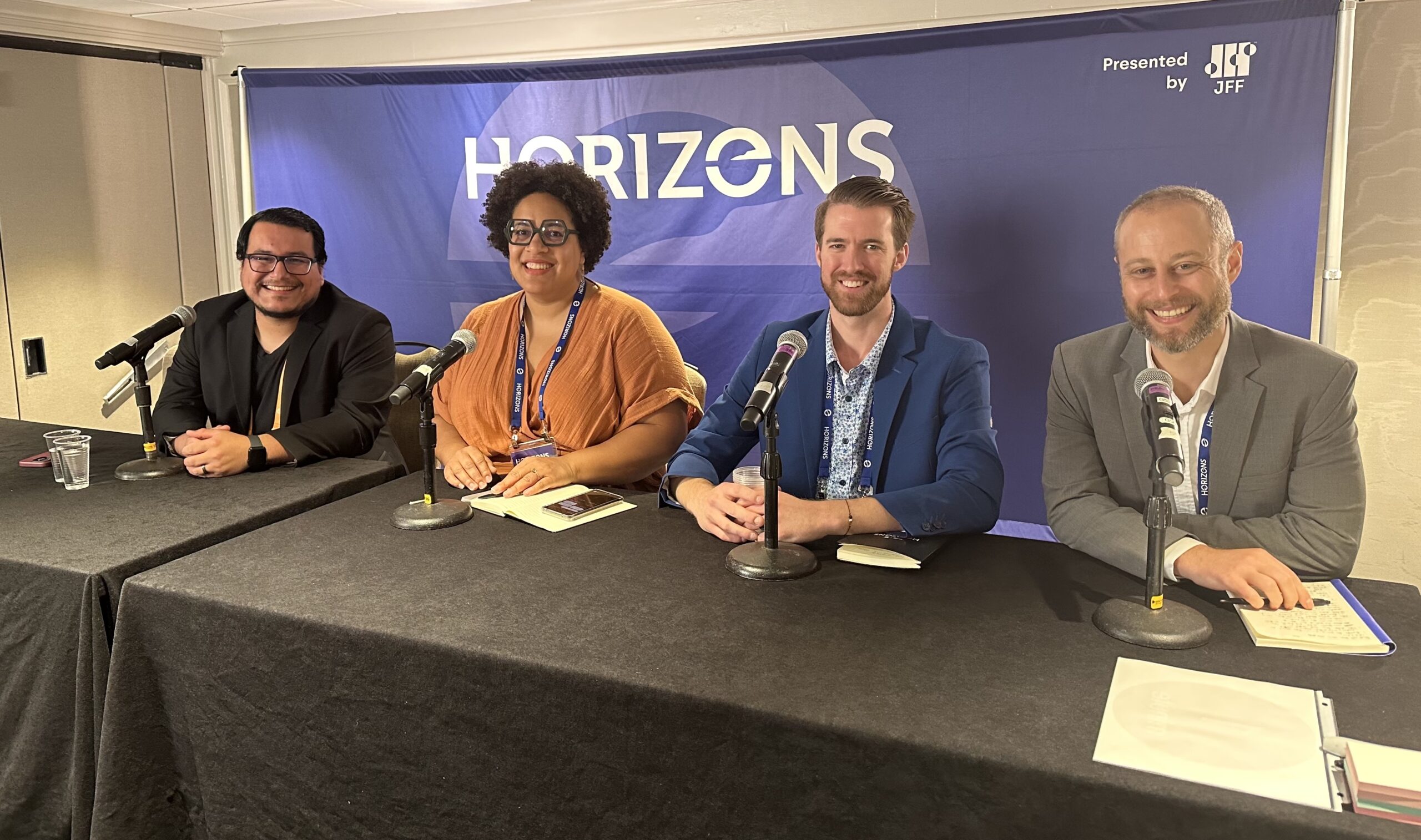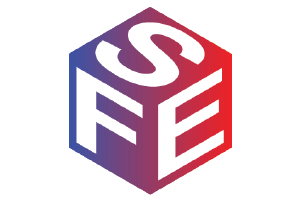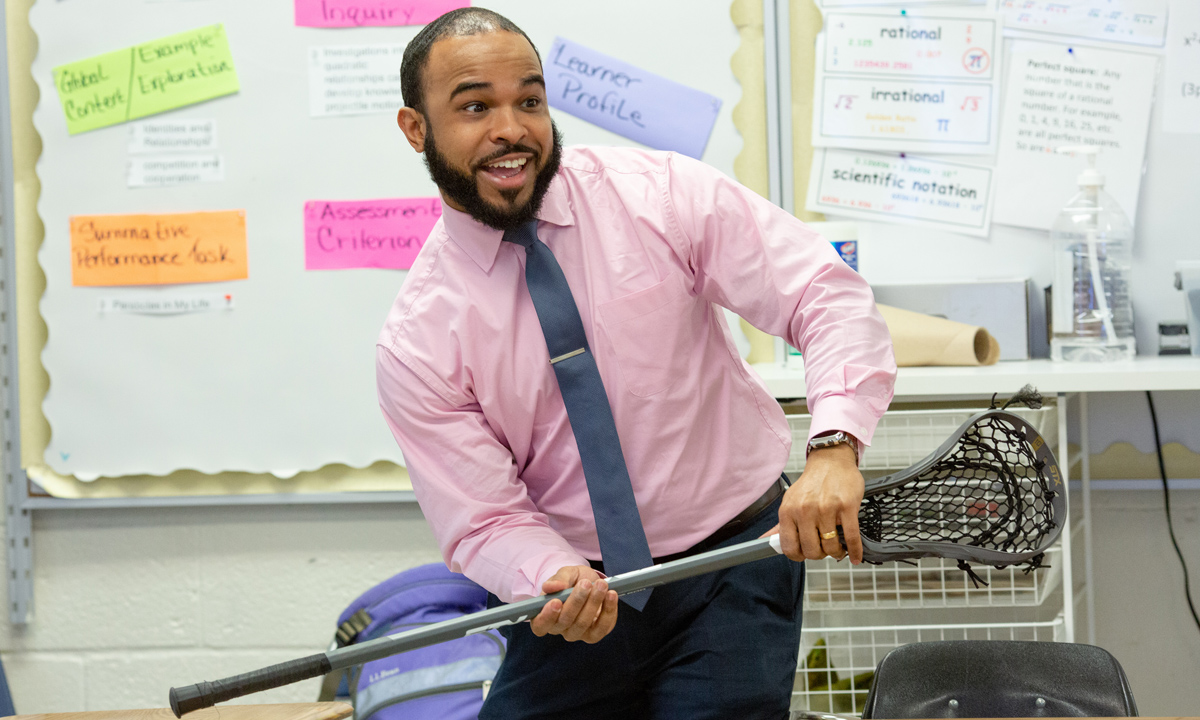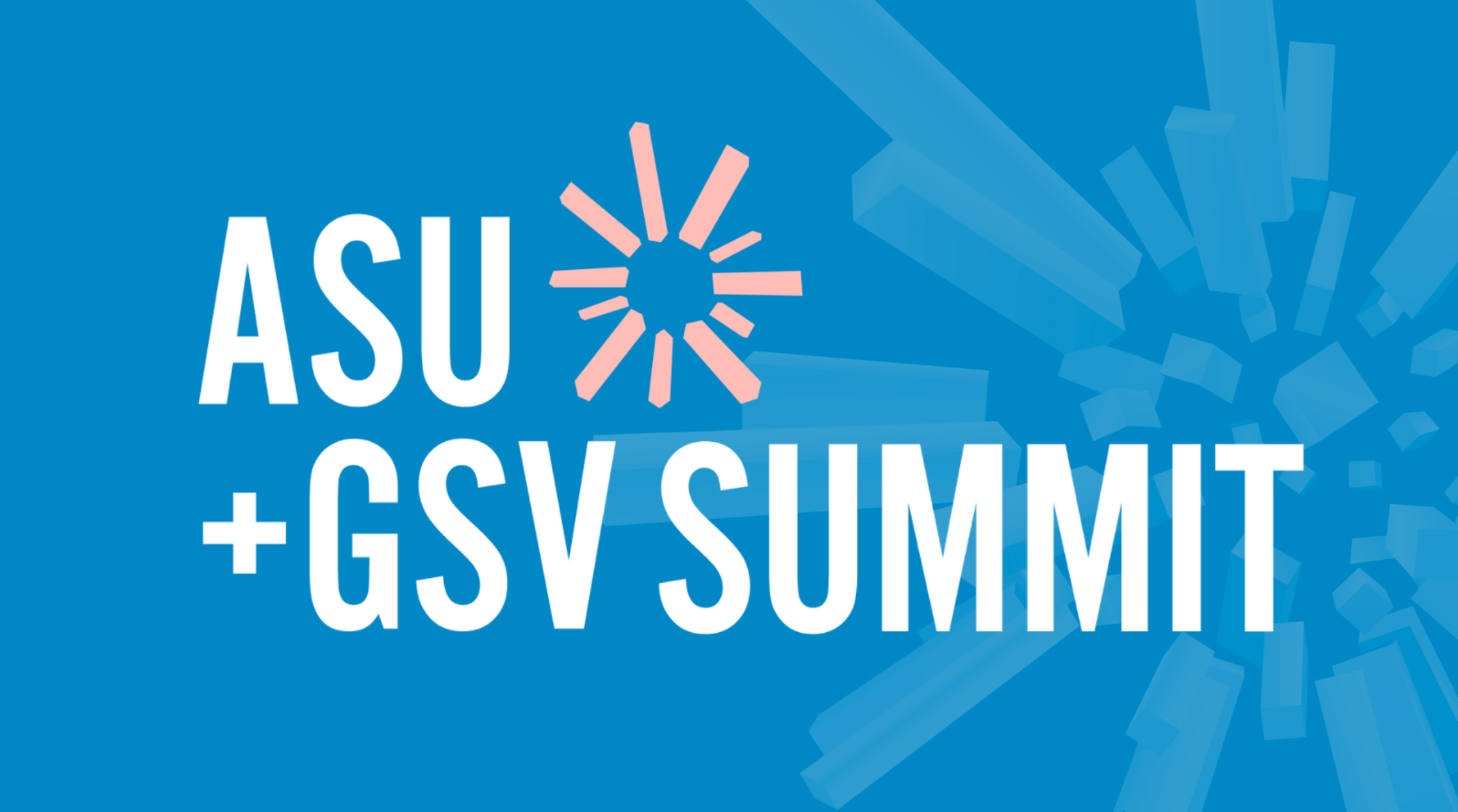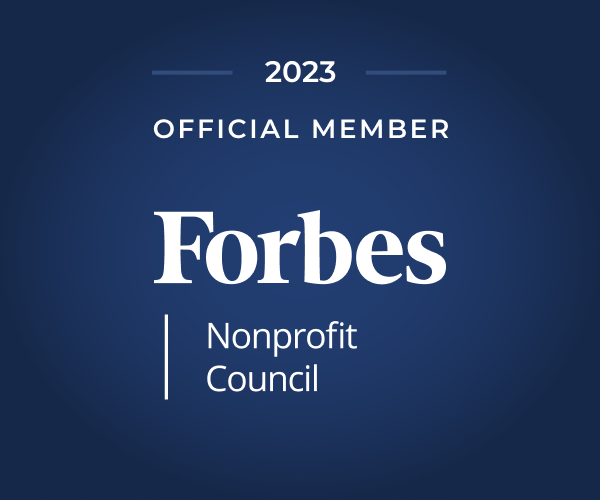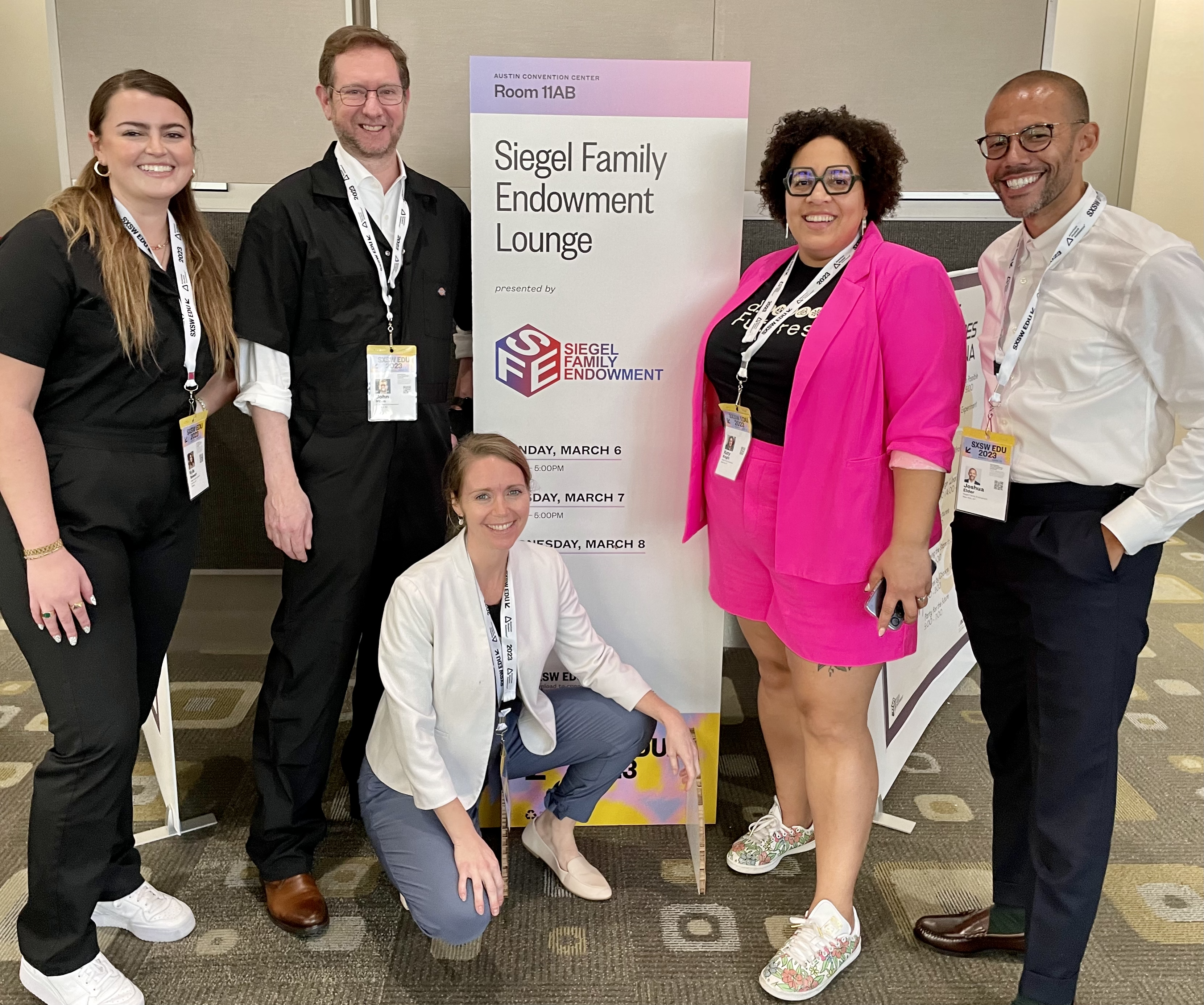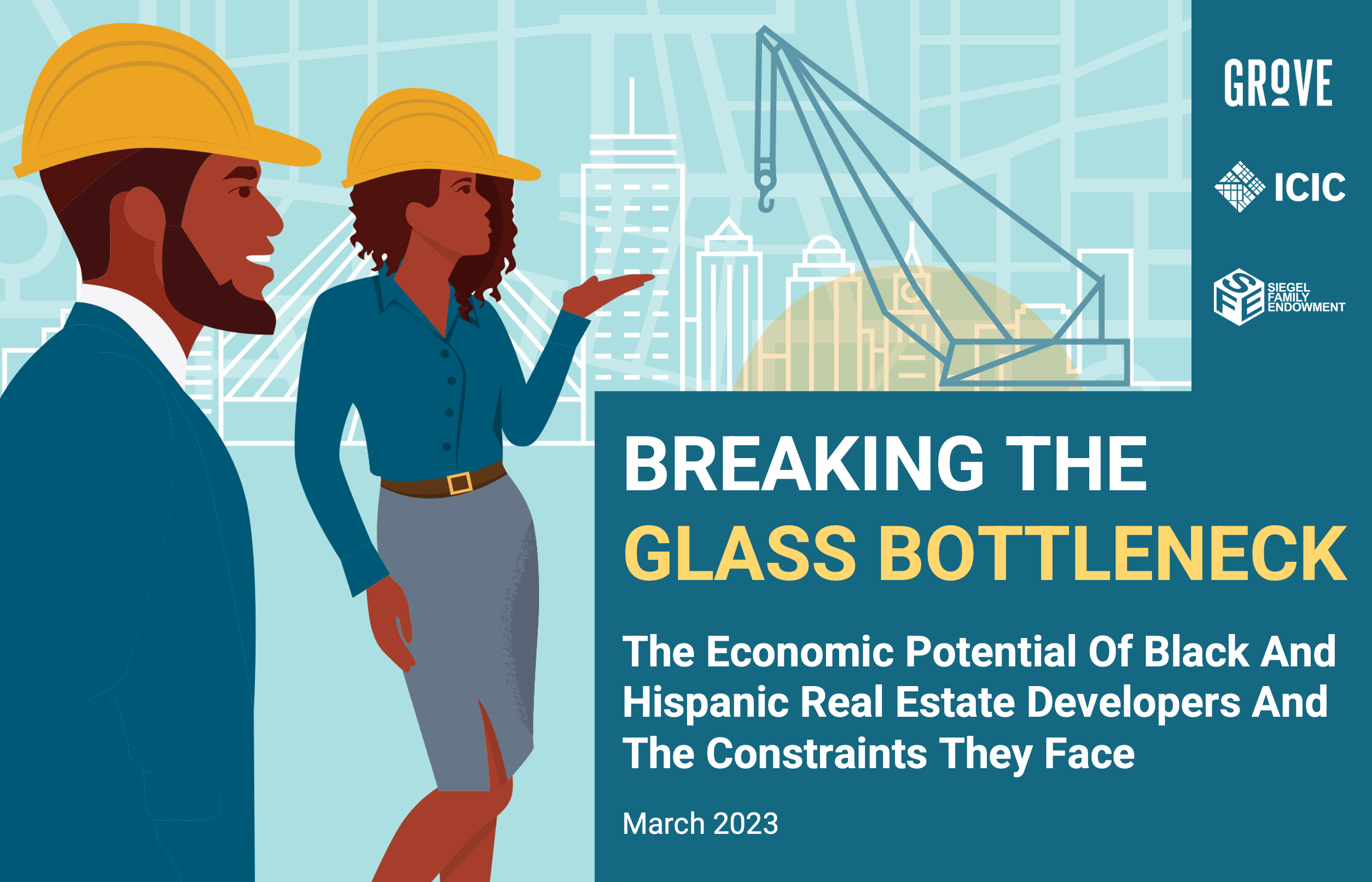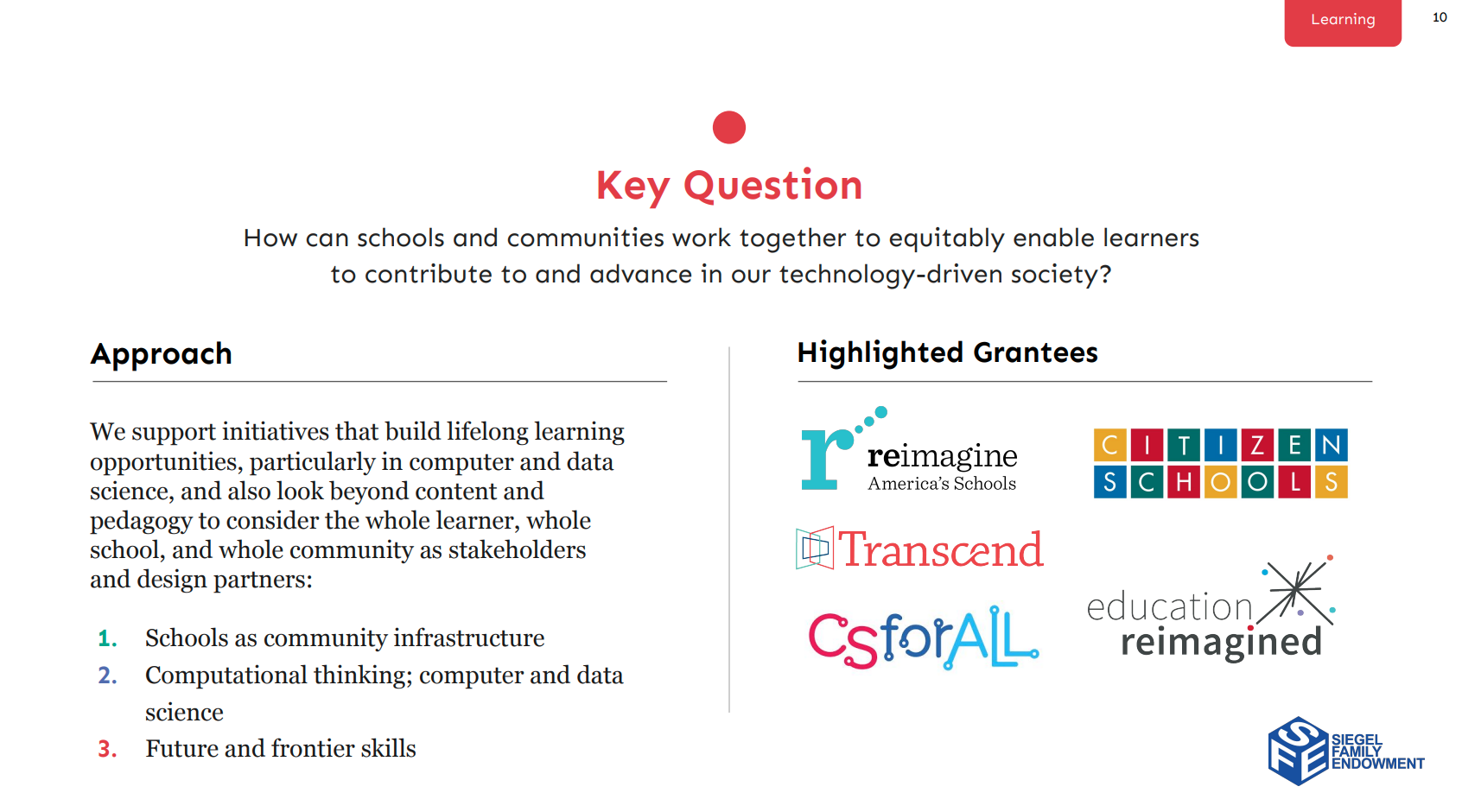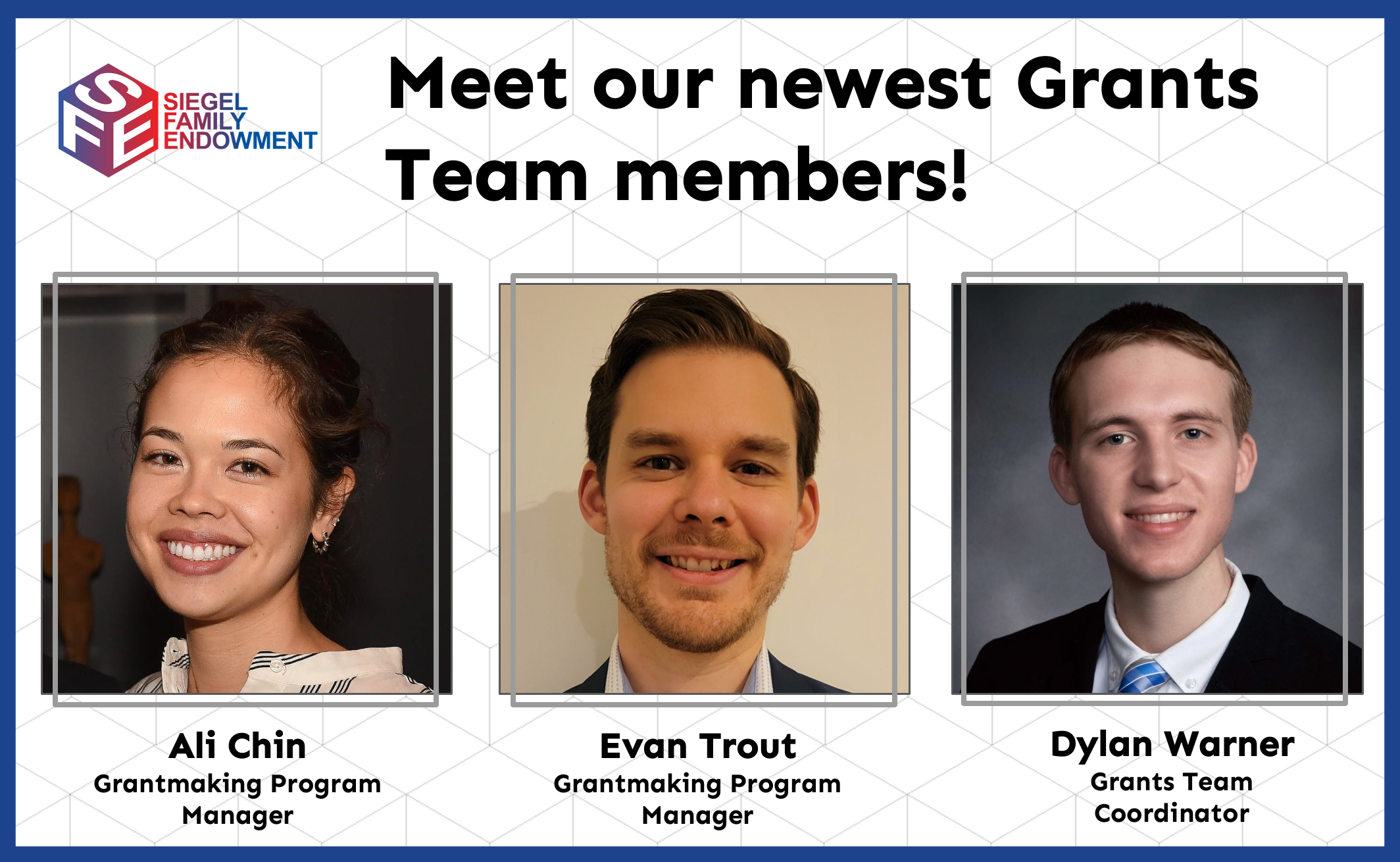Event Recap: JFF Horizons 2023
Our focus on innovative finance options and work-based learning programs stems from our commitment to creating an equitable innovation economy, one that enables all people and their communities to achieve economic prosperity. It’s with this frame that members of our team attended Jobs for the Future’s (JFF) Horizons conference last week.


